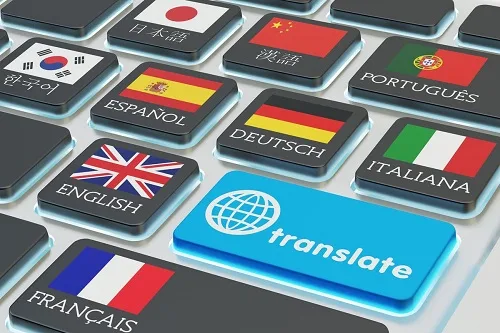
Maximizing Your Earnings as a Professional Translator
The world of translation offers vast opportunities for linguists to turn their language skills into a profitable career. Whether you’re just starting out or looking to expand your existing freelance business, understanding the nuances of the translation industry can significantly impact your earning potential. This guide explores strategies for maximizing earnings, navigating marketplaces, and leveraging professional development to thrive as a translator.
Unlocking Opportunities in Translation
The demand for professional translation services has skyrocketed, thanks to globalization and the digital revolution. From legal documents to website content, the need for accurate and culturally relevant translations is paramount. Starting your journey requires not only fluency in at least two languages but also an understanding of the translation industry’s standards and expectations.
Identifying your niche is the first step towards specialization. Whether it’s legal, medical, technical, or literary translation, specializing can make you more attractive to specific segments of clients who value expertise over general knowledge. Additionally, certification from recognized bodies, such as the American Translators Association (ATA) or the Institute of Translation and Interpreting (ITI), can further validate your skills and attract higher-paying projects.
Navigating Freelance Marketplaces and Direct Clients
Freelance marketplaces like Upwork, ProZ, and TranslatorsCafé are great platforms for beginners to find translation jobs. However, building a successful freelance career involves more than just signing up. Creating a compelling profile, showcasing your certifications, and collecting positive reviews are crucial steps. Direct outreach to potential clients and networking within professional circles can also uncover opportunities beyond these platforms.
Pricing your services competitively while ensuring fair compensation for your expertise is a delicate balance. Market research and understanding the going rates for your specialization can help in setting your rates. Offering additional services, such as localization or proofreading, can also increase your value to clients.
Building relationships with clients is key to securing repeat business. Quality work, reliability, and effective communication are the pillars of a successful freelancer-client relationship. Satisfied clients are more likely to refer you to others, expanding your network and potential for more work.
Leveraging Technology and Resources
Translation software and tools, such as CAT (Computer-Assisted Translation) tools, can enhance efficiency and accuracy. Familiarity with these tools is often required by clients and can lead to more significant assignments. Investing in professional development through courses and webinars on the latest tools and industry trends is essential for staying competitive.
Joining translator associations and participating in forums can provide valuable resources, including access to job boards, networking opportunities, and professional development. These communities offer support and advice, which can be particularly beneficial for those new to the field.

Challenges and Solutions in Translation
One of the main challenges translators face is the fluctuating demand for work. Diversifying your client base and services can provide stability. Additionally, dealing with tight deadlines requires effective time management skills to ensure timely delivery without compromising quality.
Negotiating rates and contracts can be daunting, especially for newcomers. Seeking advice from more experienced translators and using resources provided by professional associations can help you navigate these challenges confidently.
Future Prospects and Continuing Education
The translation industry is continually evolving, with new technologies and changing market demands. Keeping abreast of industry trends and continuing education is crucial for long-term success. Attending industry conferences, participating in workshops, and pursuing advanced certifications can open doors to new opportunities and higher earnings.
The path to becoming a successful translator is multifaceted, involving skill development, market understanding, and continuous learning. By leveraging your linguistic talents, embracing professional development, and building a robust network, you can create a rewarding and profitable career in translation.



